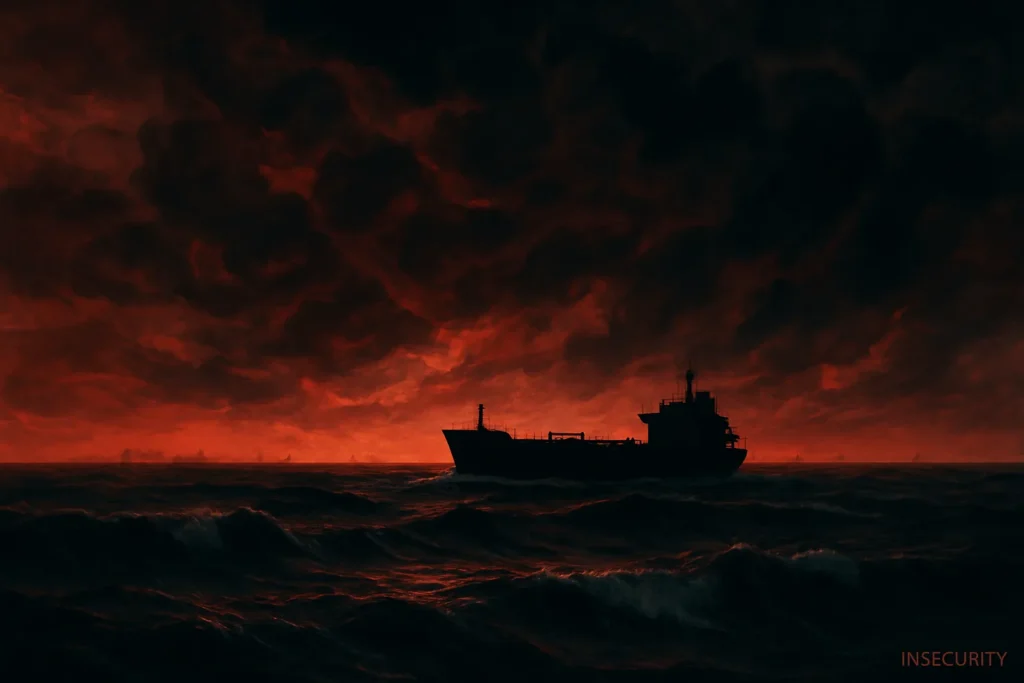Merchant Vessels Targeted Amid Renewed Violence
Two merchant ships have been attacked within a span of 24 hours in the Red Sea near the coast of Yemen, significantly escalating tensions in an already volatile region. On Sunday, the Greek-managed vessel Magic Seas sustained a serious assault, involving ballistic and cruise missiles, drones, unmanned boats, and skiff gunfire. A day later, a second vessel, the Greek-operated Eternity C, came under a similar coordinated attack.
The Eternity C, a Liberia-flagged bulk carrier with 22 crew members onboard—21 Filipinos and one Russian—was reportedly targeted by drones, rocket-propelled grenades (RPGs), and gunfire from at least four speedboats. According to Cosmoship Management, which operates the vessel, two crew members sustained serious injuries, and two were reported missing. The ship’s bridge was directly hit, severely impacting telecommunications.
Ambrey, a maritime security firm, initially warned that the attack was ongoing, describing the involvement of eight small skiffs launching grenades and gunfire at the merchant ship. Despite the severity, officials noted the Eternity C had not requested escort or protection from the European Union’s naval operation known as Operation Aspides, which offers assistance against piracy and other maritime threats.
The increasing boldness and complexity of the attacks indicate a strategic escalation by the assailants.
“This represents a concerning shift towards highly-coordinated assaults involving sophisticated weaponry. The implications for maritime security in the region are gravely serious,” said maritime security expert Dr. Jennifer Walsh.
Regional Turmoil and Escalating Reactions
The attacks have intensified ongoing regional tensions amid the unfolding conflict involving Israel, Hamas, Iran, and Yemen’s Houthi rebels. While the Houthis claimed responsibility explicitly for the assault on the Magic Seas, alleging the ship’s ties with Israeli intelligence, no similar claims were publicized regarding the Eternity C. Nevertheless, officials quickly attributed responsibility for the second attack to the Houthis, citing their historical pattern of targeting shipping routes to destabilize trade and exert political pressure.
The aftermath of the attack on the Magic Seas further underscored the severity of the situation. The crew reported substantial damage, including fires in the forepeak, flooding in the engine room, and loss of electricity. While Houthi sources claimed the ship had sunk, independent verification of the vessel’s sinking has not yet been confirmed by maritime authorities or rescuers.
Responding swiftly to these developments, Israel conducted airstrikes in Houthi-controlled Yemen targeting infrastructure allegedly used in facilitating maritime attacks. The Israeli army specifically accused the Houthis of utilizing Yemeni ports and ships like the Galaxy Leader cargo ship, claiming these vessels were equipped with radar systems designed to track and target shipping in the Red Sea corridor.
“These measures are direct responses to prevent further risks to civilian and commercial vessels,” an Israeli army spokesperson stated in a public address following the airstrikes.
The renewed violence has raised alarms internationally, particularly due to the strategic importance of the Red Sea shipping lanes, which handle approximately $1 trillion worth of global trade annually.
Historical Context and Broader Implications
The Red Sea region has long been a strategic and economically vital corridor connecting Europe, Asia, and Africa. However, its geopolitical importance has frequently made it vulnerable to piracy, terrorism, and militant attacks. Yemen, embroiled in civil war since 2014, has seen the rise of the Iran-backed Houthi rebels who have previously targeted regional shipping as part of their broader military strategy.
Prior to this attack, shipping routes in the area had experienced some level of stability following a U.S.-brokered truce with the Houthis two months ago. The ceasefire aimed to prevent attacks on international shipping, signaling a brief respite after several years of sustained maritime threats. However, the recent spate of attacks suggests a breakdown of this truce agreement and a possible resurgence in maritime hostilities.
The international community has swiftly condemned these attacks, urging all parties involved to respect international maritime laws and ensure the safety of shipping lanes. Analysts indicate that continued instability could significantly disrupt global trade, elevate insurance rates for shipping, and force vessels to seek alternative, longer routes, increasing overall shipping costs and impacting global markets.
Maritime industry officials have called for heightened international cooperation.
“International maritime authorities must collaborate swiftly and effectively to protect these critical trade routes from escalating threats,” commented Captain Roger Singh, an expert on maritime security and former naval officer.
Given the strategic significance of the Red Sea corridor, continued attacks pose risks not only to regional stability but also to global economic interests. Observers are closely monitoring the situation for further developments, as international diplomatic efforts intensify towards restoring stability and securing maritime routes.


